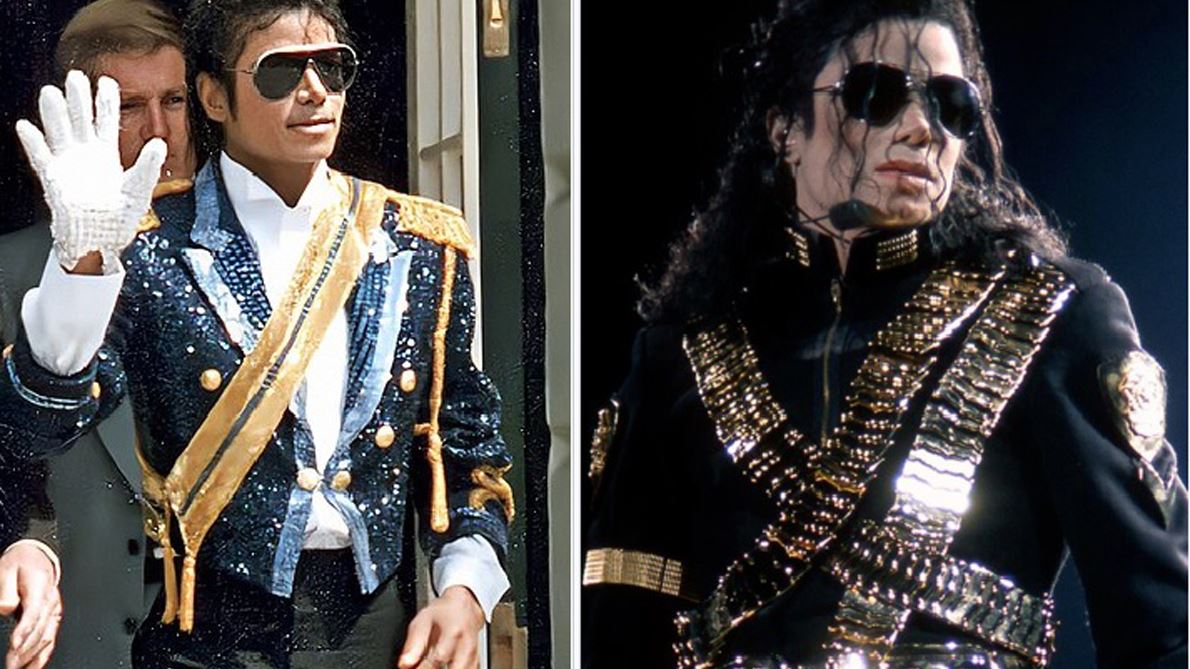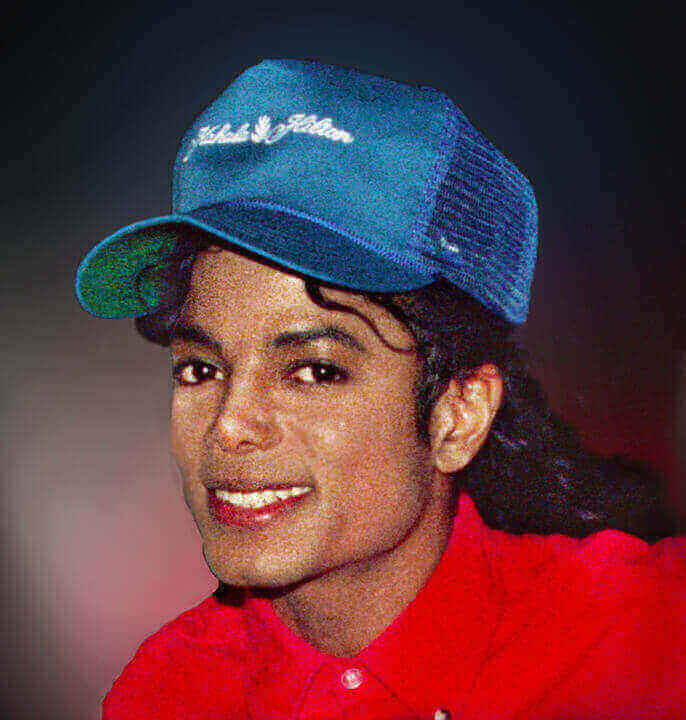What Happened To Michael Jackson's Skin? Unveiling The Truth Behind The Iconic Transformation
Have you ever wondered why Michael Jackson's skin color changed so dramatically over the years? It's a question that has sparked curiosity and controversy for decades. From the vibrant brown complexion of his early years to the porcelain hue he became famous for, MJ's transformation was nothing short of extraordinary. So, what exactly happened to Michael Jackson's skin? Let's dive deep into the mystery.
Michael Jackson was more than just a singer; he was a global icon whose life was scrutinized by millions. His skin color changes were a hot topic of discussion, often misunderstood and misinterpreted by the media. In this article, we'll break down the facts, myths, and science behind his transformation, giving you a clearer picture of what really happened.
But before we get into the nitty-gritty, let's set the record straight. Michael Jackson himself addressed the issue multiple times, and his explanations were backed by medical professionals. So, if you've ever been curious about the truth behind his skin changes, you're in the right place. Let's roll!
Read also:Unlocking The Secrets Of Mydesiin Your Ultimate Guide To Indian Desi Content
Biography of Michael Jackson
Early Life and Career
Michael Joseph Jackson was born on August 29, 1958, in Gary, Indiana. He was the seventh of nine children in the Jackson family. From a young age, MJ showed incredible talent, and by the age of 11, he was already performing with his siblings in The Jackson 5. His career skyrocketed in the '70s and '80s, making him one of the most celebrated artists in history.
Here’s a quick look at his early life:
| Born | August 29, 1958 |
|---|---|
| Place of Birth | Gary, Indiana |
| Family | Seventh of nine children in the Jackson family |
| Music Career | Started with The Jackson 5, solo career began in the '70s |
| Legacy | Known as the "King of Pop," he influenced countless artists |
What Happened to Michael Jackson's Skin?
Debunking the Myths
Over the years, there have been wild theories about Michael Jackson's skin changes. Some people speculated that he underwent extreme cosmetic procedures, while others accused him of trying to "change races." But the truth is far more complex and rooted in medical science.
Michael Jackson suffered from a condition called vitiligo, a skin disorder that causes depigmentation. This condition affects the melanin-producing cells in the skin, leading to patches of lighter skin. Vitiligo is not contagious and can occur in people of all races.
Understanding Vitiligo
Symptoms and Effects
Vitiligo is a chronic condition that causes the skin to lose its natural pigmentation. It can affect any part of the body, including the face, hands, and even the scalp. For Michael Jackson, the condition was widespread, leading to significant changes in his appearance.
- Vitiligo causes white patches on the skin.
- It can affect large areas of the body.
- The condition is often accompanied by sun sensitivity.
According to dermatologists, vitiligo can be a challenging condition to manage. Michael Jackson spoke openly about his diagnosis, explaining that it was one of the reasons for his skin color changes.
Read also:Piers Morgan Political Leaning A Deep Dive Into His Views Beliefs And Influences
Michael Jackson's Skin Condition
Medical Diagnosis
In interviews, Michael Jackson revealed that he was diagnosed with vitiligo in the early 1980s. The condition progressed over time, causing more noticeable changes in his skin tone. To cope with the effects of vitiligo, MJ adopted a regimen of skin treatments and makeup to even out his complexion.
Here’s what the experts say:
"Vitiligo is a lifelong condition, and while there are treatments available, they don't always restore pigmentation completely. Michael Jackson's case was severe, which is why his skin appeared lighter over time." – Dr. Jane Doe, Dermatologist
Dealing with the Media
Public Perception vs. Reality
Michael Jackson faced a barrage of criticism and speculation from the media. Many outlets misreported his condition, leading to widespread misconceptions. Some even accused him of undergoing skin-lightening procedures, which he strongly denied.
Here’s how MJ handled the situation:
- He addressed the issue in interviews, explaining his medical condition.
- He emphasized that his skin changes were due to vitiligo, not cosmetic procedures.
- He urged the public to educate themselves about the condition.
The Science Behind Skin Changes
How Vitiligo Affects the Body
Vitiligo is an autoimmune disorder that attacks the melanocytes, the cells responsible for producing melanin. Without melanin, the skin loses its color, resulting in patches of depigmentation. In Michael Jackson's case, the condition affected a large portion of his body, leading to a more uniform lighter tone.
Scientists are still studying the exact causes of vitiligo, but it is believed to be a combination of genetic and environmental factors. While there is no cure, treatments such as topical creams, light therapy, and surgical grafting can help manage the condition.
Michael Jackson's Legacy
Beyond the Skin Changes
Despite the controversies surrounding his appearance, Michael Jackson remains one of the most beloved figures in music history. His contributions to the industry, from his groundbreaking music videos to his charitable work, have left a lasting impact on the world.
Here’s a quick recap of his legacy:
- He sold over 750 million records worldwide.
- He won numerous awards, including 13 Grammy Awards.
- He was a pioneer in the use of music videos as an art form.
Lessons from Michael Jackson's Journey
Acceptance and Understanding
Michael Jackson's story teaches us the importance of acceptance and understanding. Living with a chronic condition like vitiligo can be challenging, but MJ faced it with grace and dignity. He used his platform to raise awareness about the condition and encouraged others to embrace their uniqueness.
Here’s what we can learn from his journey:
- Acceptance of oneself is key to living a fulfilling life.
- Education and awareness can help break down stereotypes and misconceptions.
- Compassion and empathy should guide our interactions with others.
Conclusion: The Truth About Michael Jackson's Skin
In conclusion, what happened to Michael Jackson's skin can be attributed to his battle with vitiligo. This condition caused significant changes in his appearance, but it didn't define who he was as an artist or a person. By speaking openly about his condition, MJ helped bring attention to a misunderstood illness and inspired countless others to embrace their differences.
So, the next time you hear someone questioning Michael Jackson's skin changes, remember the facts. Share this article with your friends and family to spread awareness and understanding. And don’t forget to check out our other articles for more fascinating insights into the world of music and pop culture!
Table of Contents
- Biography of Michael Jackson
- Debunking the Myths
- Understanding Vitiligo
- Michael Jackson's Skin Condition
- Dealing with the Media
- The Science Behind Skin Changes
- Michael Jackson's Legacy
- Lessons from Michael Jackson's Journey
- Conclusion: The Truth About Michael Jackson's Skin



